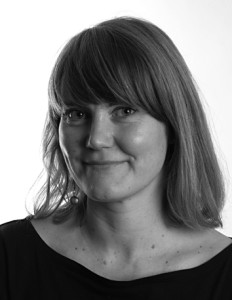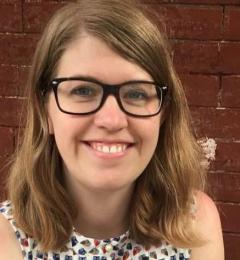BSRS 2014 Governance to meet Global Development Challenges
Welcome to BSRS2014!
The theme for BSRS2014 is Governance to meet Global Development Challenges. The event will take place from June 23rd to July 4th 2014 at the University of Bergen. Please find information about the courses, application form and other activities at the menu to your right side.
One of the courses is and IMER/SKOK PhD course.
Read more at:
http://www.uib.no/rs/bsrs/programme/bsrs-2014-governance-to-meet-global-development-challenges
 How might we think about race as a paradoxically fungible yet persistent feature of human history? This mini seminar examines race as a global phenomenon with long and diverse histories. In its migrations, conceptions of race have repeatedly been marshaled, decried, dismissed, and repurposed, reformulating conceptions of kinship and social organization along the way. From ancient empires, medieval religious conflicts, and early modern accounts of “barbarians” and “strangers” to the longue durée of colonial settlement and slavery, and from the revolutions and uprisings of the eighteenth, nineteenth, and twentieth centuries to more recent accounts of physiognomy, eugenics, and DNA, the phenomenon of race has interacted dynamically across time and space with conceptions of caste, color, class, language, identity, law, region, and religion. Our class will begin with a conventional genealogy of race as arising from the age of Atlantic Revolutions, the slave trade, and scientific thinking in Europe and the United States before complicating our understandings of the phenomenon as one shaped over centuries of contact and interchange. Our second session will examine a longer history of race and caste in relation to Iberian colonization of the East and West Indies and our third session will investigate race and the littoral in Indian Ocean studies. Registration deadline is August 8th, 2014.
How might we think about race as a paradoxically fungible yet persistent feature of human history? This mini seminar examines race as a global phenomenon with long and diverse histories. In its migrations, conceptions of race have repeatedly been marshaled, decried, dismissed, and repurposed, reformulating conceptions of kinship and social organization along the way. From ancient empires, medieval religious conflicts, and early modern accounts of “barbarians” and “strangers” to the longue durée of colonial settlement and slavery, and from the revolutions and uprisings of the eighteenth, nineteenth, and twentieth centuries to more recent accounts of physiognomy, eugenics, and DNA, the phenomenon of race has interacted dynamically across time and space with conceptions of caste, color, class, language, identity, law, region, and religion. Our class will begin with a conventional genealogy of race as arising from the age of Atlantic Revolutions, the slave trade, and scientific thinking in Europe and the United States before complicating our understandings of the phenomenon as one shaped over centuries of contact and interchange. Our second session will examine a longer history of race and caste in relation to Iberian colonization of the East and West Indies and our third session will investigate race and the littoral in Indian Ocean studies. Registration deadline is August 8th, 2014.
More info:
http://www.uib.no/skok/77000/phd-kurs-rase-migrasjon-og-slektskap
http://www.uib.no/en/skok/77008/graduate-course-race-migration-and-kinship
Mistillitens migrasjon: Europeisk sør-nord mobilitet i kjølvannet av krisa
Tema for innlegget er den nye Europeiske sør-nord migrasjonen. Den empiriske analysen er basert på dybdeintervjuer med noen av dem som har reist fra Spania til Norge etter kriseåret 2008. Innlegget vil belyse hvordan sør-nord migrasjonen i kjølvannet av krisa er mer enn en desperat flukt fra arbeidsledighet i hjemlandet. Den vidtrekkende mistilliten til det politiske systemet og følelsen av en dyptgripende håpløshet i hjemlandet er viktige migrasjonsfaktorer i tillegg til jobbmuligheter for dem som kommer til Norge.
Susanne Bygnes (phd) er postdoktor ved universitetet i Bergen. Hun leder det fireårige prosjektet Labour Migration in Uncertain Times: Migration from Spain to Norway after 2008, finansiert av forskningsrådets VAM-program. Hun har publisert en rekke internasjonale artikler på tema som mangfold og likestilling, blant annet Ambivalent Multiculturalism (2012) i tidsskriftet Sociology.
Redigert av Christine Jacobsen, Synnøve Bendixsen, Karl Harald Søvig
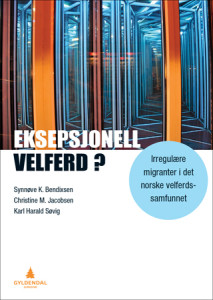 Irregulære immigranter har på noen områder full tilgang til velferdsytelser, men på mange områder er tilgangen svært begrenset enten i form av rettsregler eller andre barrierer. Denne antologien undersøker forholdet mellom rettslig rammeverk, institusjonell praksis og hvordan irregulære migranter selv erfarer sin situasjon.
Irregulære immigranter har på noen områder full tilgang til velferdsytelser, men på mange områder er tilgangen svært begrenset enten i form av rettsregler eller andre barrierer. Denne antologien undersøker forholdet mellom rettslig rammeverk, institusjonell praksis og hvordan irregulære migranter selv erfarer sin situasjon. Med en unik kombinasjon av juridisk og antropologisk blikk, går boken regelverket nærmere i sømmene, drøfter gatebyråkraters utfordringer og hverdagslivet til irregulære migranter og deres barn.
Hvilke regelverk får konsekvenser for irregulære migranters levevilkår? Hvordan blir dette regelverket forstått og etterfulgt av gatebyråkrater? Og hvordan blir hverdagslivet til irregulære migranter og deres barn påvirket av regelverket og dets fortolkning?
Denne boken er aktuell for velferdsprofesjoner som møter irregulære migranter som en del av sin yrkesutøvelse. Både leger, sykepleiere, helsesekretærer, lærere, helsesøstre, skolerådgivere, sosialarbeidere, sosionomer og barnevernspedagoger vil ha god nytte av Eksepsjonell velferd? Irregulære migranter i det norske velferdssamfunnet. Boken retter seg også mot frivillige organisasjoner som jobber med ulike aspekter ved migranters situasjon i Norge og andre som er engasjert i temaet.
In recent years, a large number of Syrian refugees have settled in Europe. In the media, most of the debate concerning these refugees has been about how they impact their host societies. But how does this large Syrian diaspora impact politics in Syria itself?
For this IMER lunch seminar, we will be joined by Amany Selim and Espen Stokke, PhD candidates at sociology and comparative politics at UiB. They both do research projects where they explore the engagement of Syrian diaspora activists, and how these activists try to make a difference in the homeland. With their work on the Syrian case, they are hoping to contribute to the growing body of literature that attempts to bridge social movement theory and diaspora politics.
In the presentation, Selim and Stokke will give a brief overview of the field: What do we know about the activism of the Syrian diaspora? They will also present their own projects, and what they wish to add to the field.
If a LGBTI person can “stay in the closet” in the country of origin, should she then be denied asylum as a refugee? This is currently a thorny issue for several European countries, when facing asylum seekers who apply for protection on the basis of their sexual orientation or gender identity. For this IMER seminar, Andrea Grønningsæter from the faculty of law at UiB will discuss how this is currently practiced in Norway.
Research has shown that that LGBTI people (lesbian, gay, bisexual, trans and intersex people) often face specific legal and procedural challenges when applying for refugee status. In a number of jurisdictions, including Norway, LGBTI asylum seekers have been denied refugee status with reference to the fact that they can abstain from behavior that may result in a risk of persecution. A gay person can live as a gay within the confines of the home, for example, but not on the streets – and may thus not be granted protection. It is then concluded that the requirement in refugee law of establishing a ‘well-founded fear’ of persecution is not fulfilled, because concealment will mean that the asylum seeker is not revealed to potential persecutors.
In 2012 the Norwegian Supreme Court considered the right to refugee status based on sexual orientation (Rt. 2012 s. 494). In the court’s decision it was stated that a gay person may not be required to hide their sexual orientation in the country of origin to avoid persecution. In cases where it is concluded that the asylum seeker will choose to conceal their sexual orientation, the court established a step-by-step approach for assessing whether the asylum seeker is entitled to refugee status.
For her PhD project, Grønningsæter looks at how the approach that was established by the Supreme Court in 2012 for assessing asylum cases based on sexual orientation or gender identity is interpreted by the courts and the immigration authorities. She explores how the courts and immigration authorities establish the asylum seeker’s reason for concealment, as well as how concepts such as ‘being open’ or ‘discreet’ about sexual orientation or gender identity is understood.
A light lunch will be served. Welcome!
Andrea Grønningsæter is a PhD candidate at the Faculty of Law, Bergen University.
‘Crimmigration’ has become a critical “catch all” concept for legal scholars, criminologists, and sociologists alike. The concept describes the way two previously separate state control spheres – border control and crime control – influence each other and are part of the same control mechanism experiences and developments. This concept, for example, helps understand Trump’s effort to legitimize the tightening of immigration policy. It refers to both the protection of American economy and jobs and the explicit intent to protect American citizens from terrorists, rapists, and gang members. For this IMER lunch seminar, Synnøve Jahnsen from Rokkansenteret will talk about the usefulness of crimmigration as a concept in other settings. She will draw on empirical examples from her research on prostitution and human trafficking, Norwegian labour market crime policies, and the policing of outlaw motorcycle clubs and youth gangs in Australia and Europe. She will also use the opportunity to promote her new co-edited book “Criminal Justice in the Era of Mass Mobility” and highlight some of the methodological challenges faced by researchers in her field.
A light lunch will be served. All welcome!
 Synnøve Jahnsen is a postdoctoral research fellow at Rokkansenteret where she specializes in the sociology of law and criminal justice.
Synnøve Jahnsen is a postdoctoral research fellow at Rokkansenteret where she specializes in the sociology of law and criminal justice.
Non-governmental organizations (NGOs) work closely with refugees by providing services and assistance. However, refugees might also be subjected to misconduct by NGOs. In such a scenario, how can NGOs be held accountable for wrongful acts?
For this IMER lunch seminar, Marianne Nerland from the Faculty of Law at UiB will present preliminary findings from her PhD project which explores recourses available to refugees seeking justice against NGOs. By drawing on interviews conducted with refugees as well as aid workers in Kakuma refugee camp in Kenya, Marianne will argue that there are serious legal obstacles that refugees face when wanting to file complaints against NGOs. This case highlights the need for an enhanced structure for NGO accountability in refugee camps.
A light lunch will be served! All welcome!
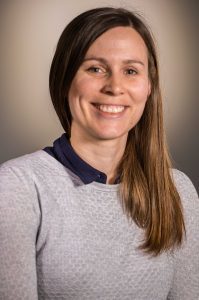 Marianne Nerland is a PhD candidate at the Faculty of Law, UiB
Marianne Nerland is a PhD candidate at the Faculty of Law, UiB
Since the refugee reception crisis in 2015, asylum seekers and refugees have often been at the centre of public and scholarly debate. However, the focus has frequently been on the problems they bring about for host countries. Less attention has been placed on asylum seekers’ aspirations, dreams and plans after arrival. Yet these are meaningful to study given that aspirations can have a significant impact on people’s future trajectories and hence, the ways they incorporate into their new homes. Furthermore, desire, despite having a strong agentic nature, is deeply entangled in the social structures and discourses that newcomers are surrounded by.
In this seminar, Zubia Willmann, will be presenting her article in which she explores how the aspirations of women who came to Norway as asylum seekers change over time, the elements that may be involved in such changes as well as how these women go about pursuing their aspirations. She draws on intermittent fieldwork for one and a half years (2017-2019) in which she followed women seeking asylum in Norway, from the stages in which they lived in asylum centres to the early stages of settlement in a Norwegian municipality.
A light lunch will be served! All welcome.
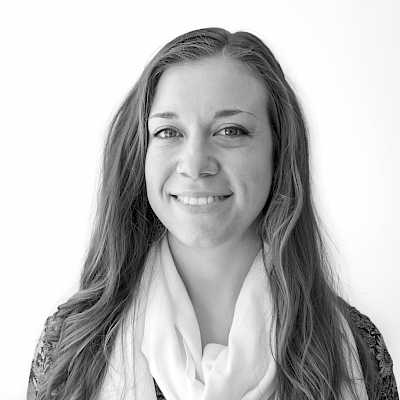 Zubia Willmann is a currently a PhD candidate at VID Specialized University, Stavanger with a project exploring how women seeking asylum in Norway go about starting their life in their new home. She has an interdisciplinary background, her main fields of interest being migration studies but also gender and religion studies among others. She has been recently a visiting scholar at the Migration and Diversity Centre at the Vrije Universiteit in Amsterdam. Zubia is also a member of the IMER Junior Scholars Network.
Zubia Willmann is a currently a PhD candidate at VID Specialized University, Stavanger with a project exploring how women seeking asylum in Norway go about starting their life in their new home. She has an interdisciplinary background, her main fields of interest being migration studies but also gender and religion studies among others. She has been recently a visiting scholar at the Migration and Diversity Centre at the Vrije Universiteit in Amsterdam. Zubia is also a member of the IMER Junior Scholars Network.
There is a deep-rooted cultural belief that encounters between strangers in local settings can bring about social change. Mette Strømsø, a researcher at the Sociology Department UiB, brings this aspect to the forefront in her study of local community initiatives established in the wake of the refugee influx in 2015. Mette will present her co-authored article with Susanne Bygnes whereby they strive to unpack the promise, inherent contradictions and transformative potential of the facilitated encounters in local communities where newcomers settled. The reference to Karen Blixen’s short story Babette’s feast indicate the cultural resonance of the promise in the facilitated encounters between newcomers and permanent residents.
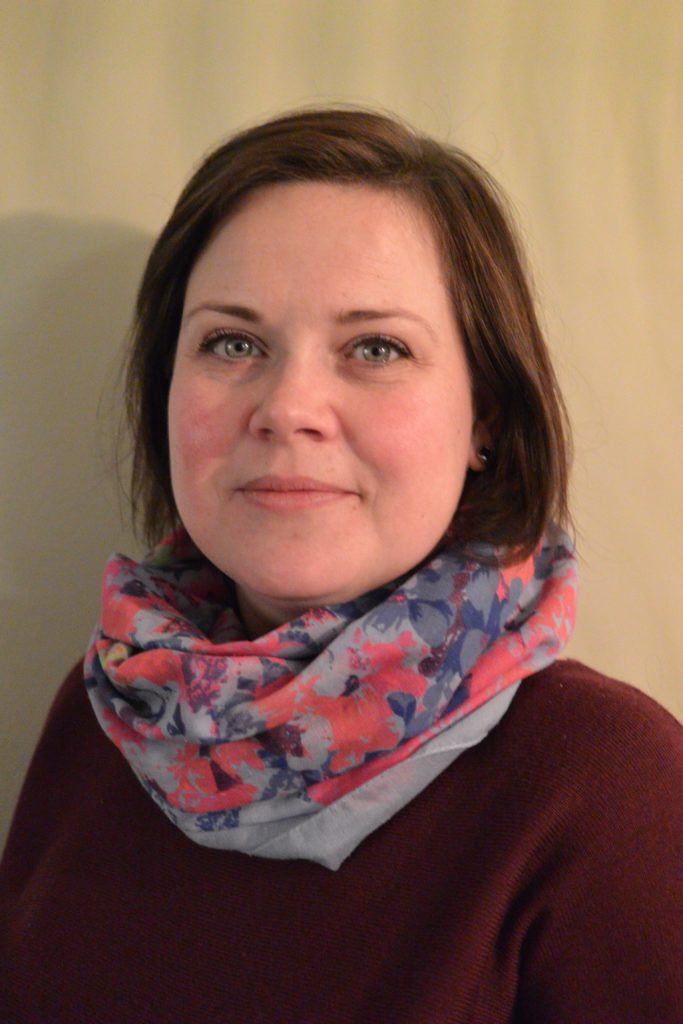 Mette Strømsø is a researcher for IMEX at the department of Sociology, UiB. She holds a PhD in Human. Her research interests fall at the intersection of political geography and social and cultural geography, with a focus on everyday nationhood and especially the reconciliation between nation and diversity.
Mette Strømsø is a researcher for IMEX at the department of Sociology, UiB. She holds a PhD in Human. Her research interests fall at the intersection of political geography and social and cultural geography, with a focus on everyday nationhood and especially the reconciliation between nation and diversity.
Join us on Zoom

